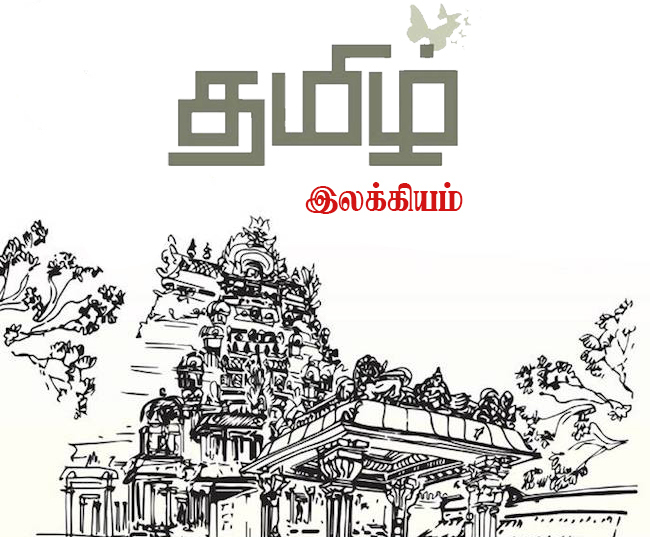Tamil Literature
In recent years, the literatures of India languages have come into limelight as some wonderful results were produced with these. Candidates have realized that these are easier to prepare and found them manageable in short span of time.
Literature of Tamil language is one of the promising optional subjects and is gaining popularity. The popularity of Literature of Tamil Language as an optional subject has risen constantly in recent years and it has become one of the popular optional subject candidates pick for mains examination. The success-rate of Literature of Tamil Language is comparatively very high among all Language Literature subjects.
Why to choose Tamil as an optional?
- Tamil, Greek, Latin and Hebrew are considered as world’s oldest languages, Tamil is still use and anyone with basic knowledge of Tamil can ace this optional.
- Anyone having good command over the knowledge can take up this optional, it doesn’t mean that you need to know and memorize all of the Tirukkural and other literature, a genuine interest and command over the basic knowledge of Tamil can help you to score in this optional.
- The paper is static and has small syllabus which helps in easing your preparation.
- Tamil Optional helps you to perform well in Compulsory Language Paper and as well as students from Tamil medium background can write UPSC Mains in Tamil.
- This optional has plenty of good resources making it much easier.

Key Features of the Course
Duration
5 Months
Timing
Regular Batch – 3:00 p.m. to 5:00 p.m.
Tentative Date of starting
August 2nd Week
Includes
- Materials
- Test Series
- One-to-One Guidance
- Answer Writing Practice
Syllabus
Paper - I
Answers must be written in Tamil
Section A
Part 1: History of Tamil Language: Major Indian Language Families—The place of Tamil among Indian Languages in general and Dravidian in particular—Enumeration and Distribution of Dravidian languages. The language of Sangam Literature—The language of medieval Tamil : Pallava Period only—Historical study of Nouns, Verbs, Adjectives, Adverbs—Tense markers and case markers in Tamil. Borrowing of words from other languages into Tamil—Regional and social dialects—difference between literary and spoken Tamil.
Part 2 : History of Tamil Literature: Tolkappiyam-Sangam Literature—The division of Akam and Puram—The secular characteristics of Sangam Literature—The development of Ethical literature—Silappadikaram and Manimekalai.
Part 3 : Devotional Literature (Alwars and Nayanamars): The bridal mysticism in Alwar hymns—Minor literary forms (Tutu, Ula, Parani, Kuravanji). Social factors for the development of Modern Tamil Literature; Novel, Short Story and New Poetry—The impact of various political ideologies on modern writings.
Section B
Part 1 : Recent trends in Tamil Studies: Approaches to criticism : Social, psychological, historical and moralistic—the use of criticism—the various techniques in literature; Ullurai, Iraicchi, Thonmam (Myth) Otturuvagam (allegory), Angadam (Satire), Meyappadu, Padimam (image), Kuriyeedu (Symbol), Irunmai (Ambiguity)—The concept of comparative literature-the principle of comparative literature.
Part 2 : Folk literature in Tamil: Ballads, Songs, proverbs and riddles—Sociological study of Tamil folklore. Uses of translation— Translation of Tamil works into other languages-Development of journalism in Tamil.
Part 3 : Cultural Heritage of the Tamils: Concept of Love and War—Concept of Aram-the ethical codes adopted by the ancient Tamils in their warfare-customs beliefs, rituals, modes of worship in the five Thinais. The Cultural changes as revealed in post sangam literature—cultural fusion in the medieval period (Janism and Buddhism). The development of arts and architecture through the ages (Pallavas, later Cholas, and Nayaks). The impact of various political, social, religious and cultural movements on Tamil Society. The role of mass media in the cultural change of contemporary Tamil society.
Paper - II
Answers must be written in Tamil
The paper will require first-hand reading of the text prescribed and will be designed to test the critical ability of the candidate.
Section A
Part 1 : Ancient Literature
- Kuruntokai (1—25 poems)
- Purananuru (182—200 poems)
- TirukkuralPorutpal :ArasiyalumAmaichiyalum(from Iraimatchi to Avaianjamai).
Part 2 : Epic Literature
- Silappadikaram : Madhurai Kandam only.
- Kambaramayanam : Kumbakarunan Vadhai Padalam.
Part 3 : Devotional Literature
- Tiruvasagam : Neetthal Vinnappam
- Tiruppavai : (Full Text).
Section B
Modern Literature
Part 1 : Poetry
- (1) Bharathiar : Kannan Pattu
- (2) Bharathidasan : Kudumba Vilakku
- (3) Naa. Kamarasan : Karappu Malarkal
Prose
- (1) Mu. Varadharajanar : Aramum Arasiyalum
- (2) C. N. Annadurai : Ye! Thazhntha Tamilagame.
Part 2 : Novel, Short Story and Drama
- (1) Akilon ; Chittairappavai
- (2) Jayakanthan : Gurupeedam
- (3) Cho : Yaurkkum Vetkamillai
Part 3 : Folk Literature
- (1) Muthuppattan kathai Edited by Na. Vanamamalai, (Publication : Madurai Kamaraj University).
- (2) Malaiyaruvi, Edited by Ki. Va Jagannathan (Publication : Saraswathi Mahal, Thanjavur).
Previous Year Questions
Previous year Questions gives you a better idea of the need of UPSC and the ever evolving nature of the exam. PYQs are the tool that will help you to have a right direction in the preparation.
Optional Paper I
| Year | Question Paper |
|---|---|
| 2021 | 2021 Tamil Paper-I.pdf |
| 2020 | 2020 TAMIL_I_0.pdf |
| 2019 | QP-CSM19-TamilLiterature-I.pdf |
| 2018 | 2018 TAMIL-PAPER-I-LITERATURE.pdf |
Optional Paper II
| Year | Question Paper |
|---|---|
| 2021 | 2021 Tamil Paper-II.pdf |
| 2020 | 2020 TAMIL_II.pdf |
| 2019 | QP-CSM19-TamilLiterature-II.pdf |
| 2018 | 2018 TAMIL-PAPER-II-LITERATURE.pdf |
 IAS-2026 - OPTIONAL / GEOGRAPHY / PUBLIC ADMINISTRATION / SOCIOLOGY / ANTHROPOLOGY / ORIENTATION ON 03 & 04-10-2025
IAS-2026 - OPTIONAL / GEOGRAPHY / PUBLIC ADMINISTRATION / SOCIOLOGY / ANTHROPOLOGY / ORIENTATION ON 03 & 04-10-2025 